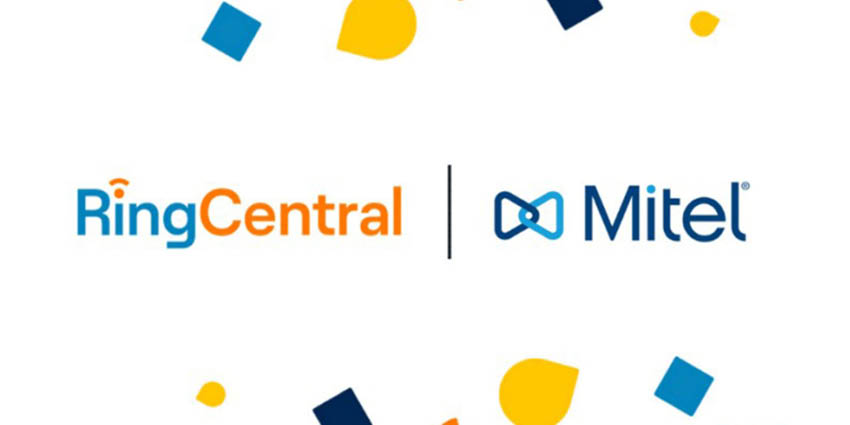Mitel shocked many in the industry when it announced its UCaaS tie-up with RingCentral at the end of last year.
The deal will see Mitel nudge partners wanting a public cloud-based system towards RingCentral’s offering rather than Mitel’s own, signalling Mitel’s early exit from a technology that the market widely expects to dominate the communications landscape.
RingCentral’s deal with Mitel is different from its alliances with the likes of Avaya and Alcatel-Lucent Enterprise – both of which see the latter two repackage RingCentral’s UCaaS technology. Importantly, Avaya and ALE retain the customer.
The Mitel partnership is different because Mitel is not reselling RingCentral technology; it is handing the customer over to RingCentral.
So, with all this in mind, where does Mitel go from here?
Daren Finney joined Mitel in August last year as the vendor’s first-ever vice president of global channel sales – charged with reinvigorating its channel engagement. Mitel’s decision to hand UCaaS opportunities to a competitor was not public knowledge at this stage, but a full-throttled UCaaS strategy from the vendor was conspicuous by its absence.
Speaking to UC Today, Finney said the deal with RingCentral made sense for several reasons.
“I don’t think anyone could have anticipated the decision to move UCaaS to one of our competitors,” he said.
“But RingCentral is in the top-right corner of any UCaaS Magic Quadrant, and, candidly, we weren’t there.
“So, when we thought about what was needed to deliver best-in-class [UCaaS] to our customers, that would have meant many years and hundreds of millions of dollars in investment or joining one of the goliaths in the market.”
Mitel will now focus on what Finney referred to as its “core competency” – unified communications, specifically, UC that is not delivered via the public cloud.
He said this is a $50bn-plus market, stressing that Mitel will not be short of market opportunities.
The departure from UCaaS is not to say that Mitel is resting on its laurels. In March, it announced that it would make all of its flagship products available on subscription models, including MiVoice Business, MiVoice Office 400, MiVoice 5000 and MiVoice MX-ONE.
Finney said this would give businesses more flexibility without having to move thousands of users to UCaaS models. High-profile customers to already adopt the new offering include Carlsberg, which has taken up a subscription model with Mitel.
Channel Strategy
As Mitel’s global channel leader, Finney has been spending time reassuring partners that the vendor still has a profitable model for them.
“We wanted to reassure partners of our future vision and strategy.
“It was important for them to see where we’re going with our roadmap and UC investment and what we’re doing from a programmable perspective.
“We want our partners to focus on customer lifecycle management (CLM). CLM is not new to our partners, but what I’ve heard is that not many vendors are doing that well today, so we want to make sure we develop a CLM approach with our partners and help them work out where they are on their journey.
“They might have a propensity for cloud or a subscription model, so we want to work with partners to build business plans around how they engage with customers.”
The crowning of RingCentral as Mitel’s preferred UCaaS solution calls into question what happens to Mitel’s own cloud products.
Finney said that Mitel was not very far down the cloud route outside of the US, the UK and Australia – meaning there will not be too much disruption for either partners or Mitel itself. He confirmed it would continue to support customers already using these products but will not be actively selling them to new customers.
Four-Legged Meetings
Beyond the partnership announcement, many channel partners have questioned how the relationship between Mitel and RingCentral will function.
Finney said that he spent a great deal of time alleviating partner fears and said that the two vendors had spent months ensuring that clear rules of engagement are in place to ensure neither the customer nor the partner suffers.
Finney said that “four-legged meetings” have become common, with representatives from Mitel and RingCentral attending meetings with the partner and customer to make sure any transitions are smooth.
He stressed the intention is for partners to remain a core component of solutions, even when customers have left Mitel for RingCentral.
“Many of our partners have been with us for 50 years, and we’ve always been partner-centric.
“We want to be sure that, as we migrate to UCaaS [with RingCentral], the partner still owns the relationship.
“It’s about customer choice and partner choice, but we want to make sure that we’re supporting our partners to be successful.”







